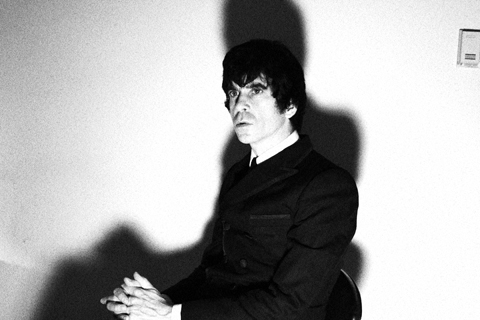
THE LIVING AND THE DEAD Ian Svenonius digs into what might have happened while trying to chart a course to the future. |
These days, the road toward a successful music career seems very brightly lit. Like an intricate GPS device teeming with metadata, today's lifestyle mags, rock camps, music blogs, reality shows, and alcohol industries each help to illuminate the path for young musicians, so that their efforts to create a healthy, productive rock group go as smoothly and efficiently as possible.
So where's the problem? While this scenario might appear as a blessing for those looking to land a nice, comfortable career in music — or a zesty Pandora playlist, for that matter — some augur a certain danger in whittling rock and roll to a series of clean, flat stones placed over a bog one traverses en route to artistic fame or financial success.
One of those conspiring to muck up the path is Ian Svenonius: writer, DJ, and frontman of DC post-punk groups the Make-Up, Nation of Ulysses, and now Chain and the Gang. In his new and uniquely comprehensive book, Supernatural Strategies for Making a Rock 'n' Roll Group, Svenonius invokes the black-magic art of the séance in revising rock history, resurrecting dead rock stars and long-buried ideological perspectives on the origins and exhibitions of the well-traveled form.
Like a smoke bomb in a SXSW showcase, the ambitious project of Supernatural Strategies is to inject a spume of confusion into the staid, success-driven rock narrative of today, while serving as a quasi-mystical handbook for that rare musician still willing to take the long route. Written in a language couched in satire and anchored by years of experience, it is both a rigorous study of an elusive and enduring cultural art and a sobering critique of its many tortured machinations.
And as the contemporary music landscape has been re-stratified by new technologies and contracted economies, it might even be particularly topical. As Svenonius told the Portland Phoenix in a telephone call, the book is a response to what he perceives as a shifting ethos in the music world. "It's generally considered a positive development that rock and roll bands are becoming institutionalized," he explains.
"There are all these rock camps for kids now — they're sponsored and fomented — and they're filled with really practical knowledge about how to be in a band. It's all laid out like a Petri dish, and that has profound implications on the form of rock and roll."